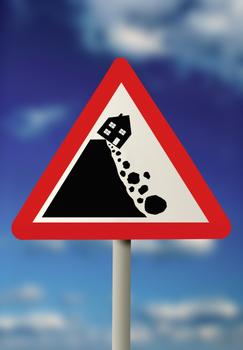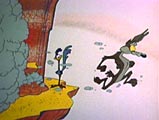 Pfizer is the world's largest pharmaceutical company with about $50 billion in sales, so let's use this company as a benchmark for Big Pharma's future.
Pfizer is the world's largest pharmaceutical company with about $50 billion in sales, so let's use this company as a benchmark for Big Pharma's future.As we look at Pfizer we'll soon find something very interesting. Pfizer's CEO Hank McKinnell is revealing in the recent Fortune 500 issue a well guarded secret within Pfizer called "The Cliff". According to Forune, this was the point in time when "key patents were due to expire, and there were far too few potential blockbuster drugs in the early-stage pipeline--Pfizer was approaching a period of steep decline. For everyone privy to the report, including McKinnell, then a VP, a single page stood out. On it was a graphic that forecast a whopping 33% drop in Pfizer's revenues over a three- to four-year period starting around 2003. "We called it the cliff,"says McKinnell. "
At the same time as McKinnell makes this revelation, Pfizer Vice Chairman David Shedlarz told investors, at the annual Deutsche Bank healthcare conference in Boston, when asked about Lipitor sales (the key reason Pfizer sales may fall off the cliff), that "to assume that they will fall off a cliff, that's not a realistic assessment."
And Pfizer executives' talk about a non-existent cliff continues. "I think we feel comfortable that, while it's going to be one heck of a challenging year, we don't believe there's a cliff or trap door we're going to hit," Peter Brandt, executive vice president of U.S. pharmaceuticals, said at a Morgan Stanley conference last week.
So what is going on here, is there a schism between Pfizer's CEO and his management team?
Hardly.
This is what is really going on: CEO's don't like to talk about the fact that their sales are about to fall off a cliff. Pfizer's CEO is no different. That is, until he started getting challenged by virtually every major newspaper a few weeks ago, after Pfizer's most recent proxy statement showed he'd get a $83 million pension. The problem is that during McKinnell's tenure as CEO, Pfizer stock has fallen more than 40%, so now he wants to explain himself and the fact that it isn't really his fault that Pfizer stock has fallen off a cliff, but that everyone inside Pfizer knew the bad things that would happen a long time ago. And I'm sure he's correct about this.
Funny thing, though, I don't remember reading about Pfizer telling all this to Wall Street back in the days when McKinnell found out about this dire prediction. But there is no question that McKinnell wants you to know about "The Cliff" now and the fact that during his stellar leadership "The Cliff" has been avoided. Except if you look at Pfizer stock, which really fell off a cliff, but that's a minor technicality. The Fortune magazine states that, "as McKinnell is concerned, you can't begin to judge him until you understand what is known at Pfizer as "the cliff."
The Fortune 500 article also says that, "Pfizer's shares have lost about 40% of their value since McKinnell took over as CEO in 2001, vs. a 19% drop for pharma as a whole, due to an industrywide R&D drought. McKinnell raked in some $61 million in salary and bonuses in that period, during which the S&P 500 index rose 5%."
 So clearly McKinnell has to respond somehow, and he dusts off that old report no one at Pfizer wanted to tell Wall Street about, as far as I know anyway, because then Pfizer stock would have fallen off the cliff more than ten years ago.
So clearly McKinnell has to respond somehow, and he dusts off that old report no one at Pfizer wanted to tell Wall Street about, as far as I know anyway, because then Pfizer stock would have fallen off the cliff more than ten years ago.But clearly, apart from explaining that McKinnell did a terrific job during the past five years when Pfizer stock fell off the cliff, management really don't want invstors to think that sales will continue to fall off the cliff.
So, Pfizer's CFO tells investors that there is no cliff coming up for the $14 billion blockbuster Lipitor. And Patrick Kelly, who heads up Pfizer's U.S. operations, is quoted saying "It won't be like a light switch, where you pull the switch down and all Lipitor sales go away. It'll be more like a shade."
As for me, I'm simply astonished that all the people on Wall Street who make more money than McKinnell can be so stupid that they didn't see all this coming. It is not like patent expiration is similar to rocket science. Then again, maybe they did see this coming and simply stuck the Pfizer stock to small investors.
Good investment advice: Stay away from Pfizer and Big Pharma for the next five years. We will learn of many more undisclosed "cliffs" during that time period. According to IMS, half of U.S. pharma sales will lose their patent protection in that time period. And Big Pharma isn't spending the majority of high drug prices on research, but on advertising, marketing and selling.
A prescription for disaster.
1 comment:
Dr Rost: Do you really believe that there are NO Big Pharma companies that stand to prosper in the next half-decade? Surely there must be one or two companies that are investing in the right kinds of medicines and research. And, in terms of stocks, aren't there any bargains out there?
Post a Comment